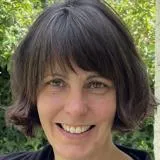Please note: this event has passed
There is a growing concern in the current global scenario about the declining interest of young people in pursuing scientific careers. This includes individuals with disabilities who not only lack representation in STEM fields but also confront physical, attitudinal, methodological, and other obstacles that prevent them from identifying science as something "for me".
To address this issue, the STEM Education Hub is hosting a roundtable discussion with experts in STEM education, equitable engagement, and informal STEM learning.
The panellists will explore the potential and obstacles of inclusivity for individuals with disabilities across these fields and discuss challenges in building and enhancing their science capital, which refers to the knowledge, skills, and confidence needed to engage with science effectively. In addition, the role of informal educational spaces in promoting inclusivity and STEM aspirations will be highlighted.
Heather King, from King's College London (UK), and Jessica Norberto-Rocha, from FioCruz (Brazil), will be joined by PhD student Gabriela Heck, whose thesis aims to understand the potential of science museums in building the science capital of people with disabilities. Gabriela will mediate the discussion and provide insights from her research findings.
This roundtable is an essential step towards promoting inclusivity and accessibility in STEM education. By addressing the challenges and potential solutions, the discussion will help identify ways to support and inspire individuals with disabilities to pursue their interests in science.
Please register through Eventbrite at the link above and we will send you the zoom details closer to the time.
Speakers
Gabriela Heck
Gabriela, a PhD student in Education at PUCRS (Brazil), is dedicated to researching the inclusion of individuals with disabilities in STEM fields. Her focus centres on exploring the potential of informal spaces, particularly science museums, to provide accessible experiences that welcome and engage visitors with science, thereby helping them build and acquire science capital. Since 2020, she has been a member of the research group Accessible Science Museums and Centres, which conducts research on inclusivity and accessibility within museums.
Professor Heather King
Prof King’s research examines the ways in which educators foster learner engagement with science across many contexts including schools, museums, the natural environment, and non-formal spaces such as maker spaces. Her work focuses on social and environmental justice concerns with respect to education practice, and, in particular, examines ways in which teachers use the science capital teaching approach.
Heather is co-chair of the Science and Technology Education Research Group at King's College London and teaches modules in STEM education leadership, STEM Making and Creating, and in Education in Arts and Cultural Settings. She is also the Vice President for Education at the British Science Association.
Jessica Norberto Rocha
Researcher and science communicator at the Foundation Science Centre and Higher Distance Education of the State of Rio de Janeiro (Cecierj Foundation). Ph.D. in Education from the University of São Paulo and a Master's Degree in Scientific and Cultural Communication from the University of Campinas (Unicamp). Professor at Oswaldo Cruz Foundation (Fiocruz) at the Doctorate and Master programmes in Bioscience and Health Education and the Masters in Science, Technology and Health Communication.

